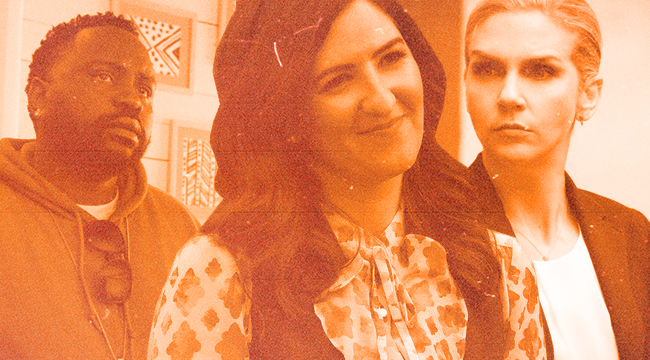
The best television performances of 2018 came from everywhere. Streaming shows, premium cable shows, basic cable shows, network shows. They ran the gamut from lead to supporting. There are newcomers and returning favorites, cartoons and humans, all-knowing afterlife beings that wear blue vests and… well, more humans. They showed us the struggles of aspiring southern rappers and female wrestlers and spies. And assassins. And more spies and assassins. It was a really great year for spies and assassins.
A list of great performances is always fun to make because it gives whoever is making the list a chance to shine a light on the individuals who deserve it. It feels good, to say “Hey, you know who’s pretty good?” and then explain who and why. We know because we did it, here, below. Our list is long and not comprehensive by any means. You probably have your own favorites. That’s great! Share them with us in the comments or yell them out your window. Again, it feels good to do it. We all deserve this.
Let’s do it.
The Entire Voice Cast, Big Mouth
Everything Maya Rudolph’s Connie says is ultra confident, wild, and irresistible. Nick Kroll’s Coach Steve is witlessly struggling with the long and winding runway to adulthood that he’s on, but there’s a kind of limping stray cat charm about him that makes you care. And David Thewlis, as the Shame Wizard, is unsettling for the glee he takes in delivering his whispered agenda of self-doubt to the children. There are other voice performances and characters of note on the show, but I just wanted to highlight a few. I also wanted to point out that, while Big Mouth’s surface appeal is that it lets us remember when we were annoyed, confused, and perpetually anxious kids beset by the plague of puberty, that mix of messed up adults and hormone monster mentors deserves as much credit for the show’s success. Specifically, because they’re the most show-y characters with the best lines and often make the point that Big Mouth has a secondary message about grown-ups: no one beats puberty, we just sort of get used to the damage. — Jason Tabrys
Florence Pugh, The Little Drummer Girl
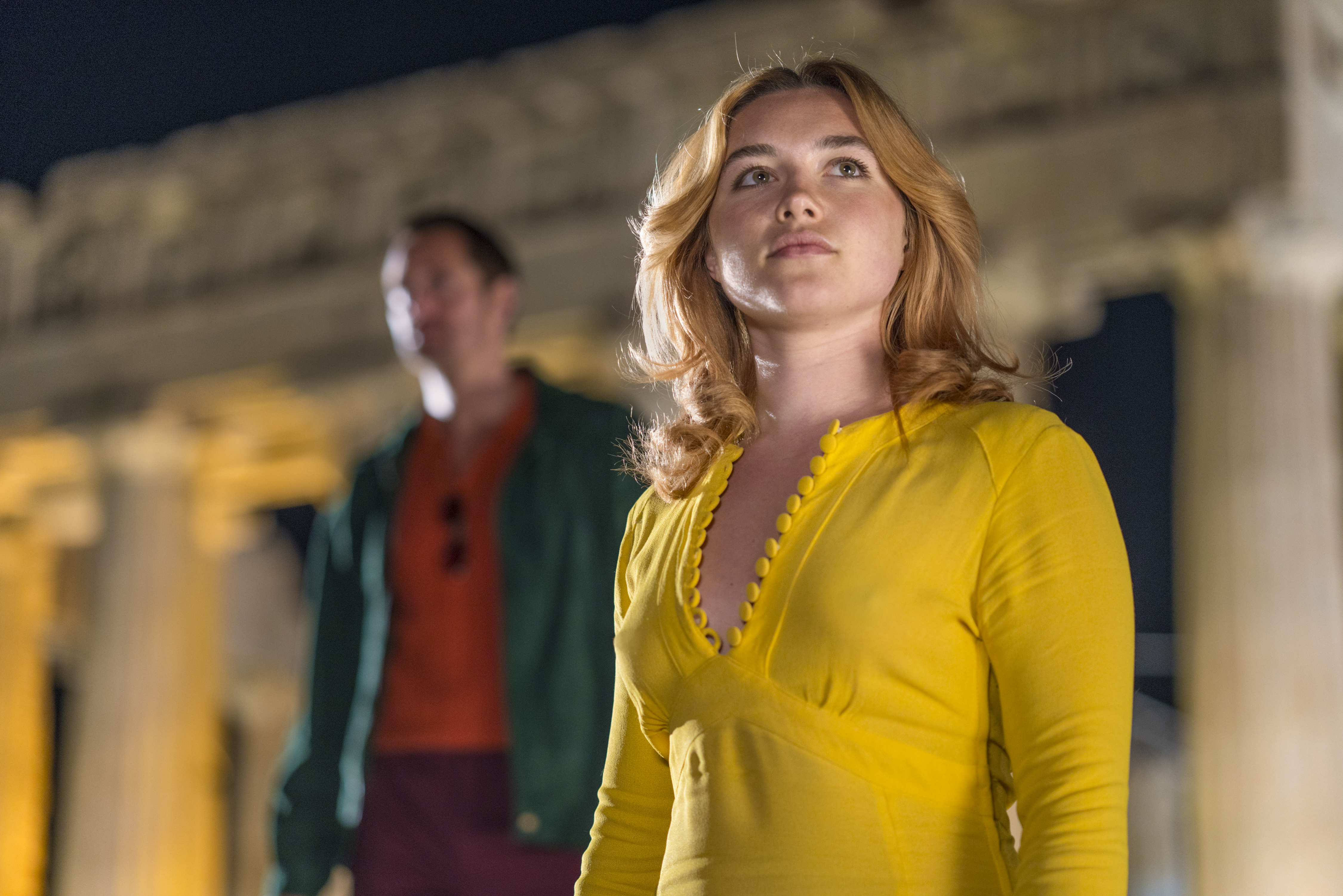
The Little Drummer Girl was AMC’s second run at a miniseries based on a John le Carre novel, following The Night Manager and all of its Hiddleston swaggering and Hugh Laurie pastel-wearing. It was good. There were twists and turns and Michael Shannon in glasses and I will remember none of that because Florence Pugh was so great that it overshadowed everything. Her character, Charlie, was an actress who was recruited into spycraft by Israeli secret agents. She was surrounded by ciphers, people who held back and were not often doing what they said they were. The result: Florence Pugh got to shine. She had to shine. Without her breathing life into the show with charisma and color and serving as the audience’s representative in all the confusion, none of it works. It did, though. A lot. Because Florence Pugh is a star. — Brian Grubb
Travis Tope, American Vandal
The first season of American Vandal won a Peabody Award, and the second season proved nearly as good, but that didn’t stop Netflix from canceling the satirical true crime series. As much as this sucks, however, “Boardwalk Empire” alum Travis Tope’s performance as Kevin McClain, season two’s alleged “Turd Burglar,” is quite the opposite of sucking. On the contrary, the performance is as compelling — if not more so, though for different reasons — as Jimmy Tatro’s excellent work as supposed dick-drawer Dylan Maxwell in season one. From Kevin’s generally odd demeanor as a willful social outcast to his genuine devotion to his decidedly not-awesome band, Tope knocks it out of the park. It honestly makes American Vandal’s cancellation all the more distressing. — Andrew Husband
Jodie Comer, Killing Eve
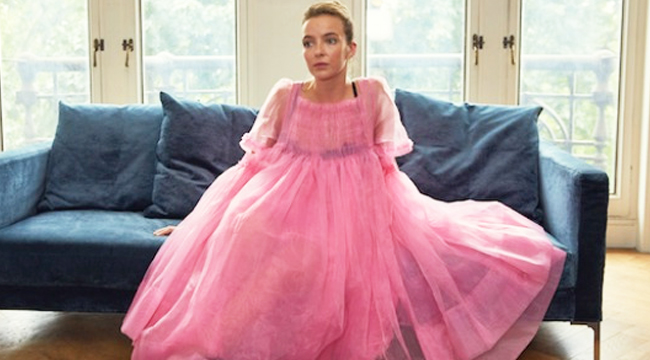
Probably the best compliment I could pay Jodie Comer for her performance as Villanelle on Killing Eve is that if I just had to be tracked down and murdered by a psychopathic, globe-trotting assassin, I would want it to be Villanelle. I say this because I’m sure my death would take place somewhere fabulous, and there would likely be some element of seduction involved, and she’d probably be wearing a killer dress (no pun intended), looking sexy as hell. I’d probably be in a bar in Prague sipping a fancy cocktail and she’d slide over to me and pretend to be interested. We’d have a wide-ranging, stimulating conversation filled with playful flirtation, and then we’d head back to my hotel where we’d kiss in the elevator and while we kissed she’d secretly slice my liver out with a scalpel or something, and I probably wouldn’t even feel it because I’d be so completely enraptured by her. Yes, if I just had to be a mouse, I just can’t imagine a better cat to be hunted and consumed by. — Brett Michael Dykes
Penn Badgley, You
Despite what Penn Badgley would like for the viewing audience to believe (mostly because he has to keep telling fans on social media that they should not be attracted to his character here), You is basically an alternate universe version of Gossip Girl. No, Dan Humphrey never killed anyone, but — SPOILER ALERT for something that makes no sense either way — he was, in fact, the titular Gossip Girl. In the series finale, Dan retroactively became a psychotic stalker who did everything he did in order to be part of the boring object of his affection’s shallow world. The reason all of this background is necessary is that Badgley’s Joe Goldberg in You is a psychotic stalker who — as he regularly reminds us in voiceover — also does everything he does in order to be part of the boring object of his affection’s shallow world. (Despite how often both characters harp on about said shallow world, they really love doing everything they can to be part of it.)
The difference between Dan Humphrey and Joe Goldberg, however, is that now Penn Badgley actually has the pertinent information to play his character’s true nature accordingly and, as such, Badgley puts on the kind of performance that would truly make anyone say, “Dan Humphrey, who?” (again, if Dan Humphrey had not ended up being a psychopath). Most impressively, a lot of the heavy lifting comes in the form of Joe’s voiceovers — which provide some of the most disturbingly funny beats of the season — as his hyper-awareness of some things (which allow him to be a perfect stalker and chameleon in the first place) is in constant competition with his lack of self-awareness in others (like his belief that he is the biggest feminist in his obsession’s life). It’s not an easy task, and You is not a perfect show, but Penn Badgley’s performance is the type of captivating, entertaining villain performance that surprisingly doesn’t tip into the side of wanting him to get away with it. In fact, like any truly good heel, he makes you want him to get what’s coming to him, whatever that may be. — LaToya Ferguson
Brian Tyree Henry, Atlanta
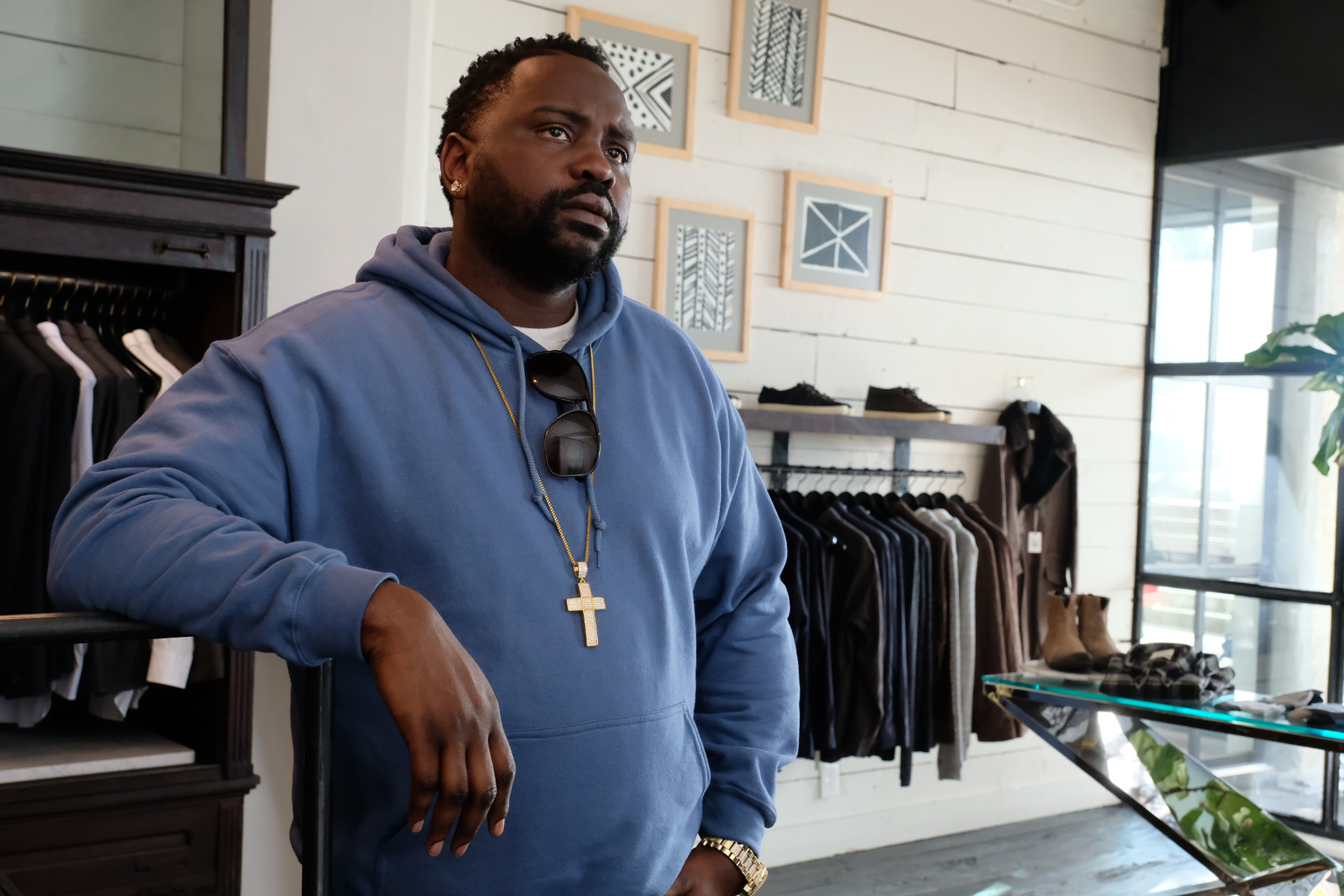
Atlanta is filled with talented people. Donald Glover does everything. Zazie Beets rules. Lakeith Stanfield carried one of the best television episodes of the year (“Teddy Perkins”) and starred in our pick for best movie of the year (Sorry to Bother You). But the engine for the show is Brian Tyree Henry. And Brian Tyree Henry’s face. The man is a master of reacting to things. As Paper Boi, he has plenty of opportunities to do that, too. He had two big showcases this year, one a run through the woods after a mugging and one a miserable day with a chatty barber. Watch him again in both of those. He’s so good when bad things are happening. There’s a gift and a curse there because I do want to see things work out for him and Earn at some point, but I also enjoy seeing him get annoyed and frustrated. I really do enjoy it. Maybe someone can burn his building down next year. I would like that. — Brian Grubb
Keri Russell, The Americans
The final episode of The Americans aired roughly six months ago, and there still probably isn’t a day that goes by where I don’t think about it and miss it. Hell, some days I will even pull up clips from the show that are favorites of mine and pine for it even more. When I watch these clips, I’m often awestruck by Keri Russell’s performance, and then I think about how she’s never won an Emmy or a Golden Globe for her starring role in one of the best shows in TV history, and then I get angry and have to go for a walk to calm myself down. But then I’ll put on U2’s “With or Without You” when I’m out for that walk and it’ll of course remind me of the train scene in the finale and then I just get mad all over again. I guess I just need to accept that I’ll probably never not be mad about Russell being snubbed (so far) for her portrayal of Elizabeth Jennings. She made me actively root for a KGB agent to f*ck over on my home country at the height of the Cold War. If that’s not great acting, I don’t know what is. — Brett Michael Dykes
Rhea Seehorn, Better Call Saul
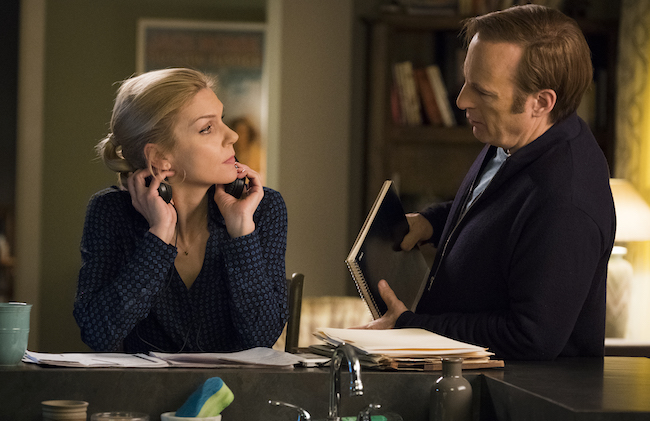
After not using Twitter for nearly a month, Bob Odenkirk tweeted the following: “It took me 10 minutes to login to Twitter…here comes a ‘tweet’…” Five minutes later. “Screw it. I’m trying to tweet out TV guide picked out Rhea Seehorn’s wonderfulness on Better Call Saul’s recent season – hell yeah!!” That’s as good a reason as any to use Twitter. Seehorn has become the beating heart of Better Call Saul, the audience surrogate who’s equal parts horrified and mesmerized by what Jimmy McGill is becoming, or after the season four finale, has become. I am very scared for what’s going to happen to Kim Wexler (and her impeccable ponytail), but I’m sure glad we got to know her. — Josh Kurp
Matthew MacFayden, Succession
Oh my goodness did I want to punch Matthew MacFayden’s Tom character in his vaguely Armie Hammer looking face at the start of Succession! I’m sure the actor is a swell guy, but his character’s every movement was informed by the total absence of a spine and strategic villainy as he tried to worm his way into the good graces of his girlfriend’s family; the fiscal behemoths who also happened to control the trajectory of his career. Couldn’t stand him through 9/10ths of the show. But that’s good. Detestable characters deserve end-of-year list post love too. They also start from such a low place that there’s nowhere to go but up. And that’s precisely where Tom ended, finding an ounce of oomph after getting gutted by a wedding night revelation and threatening to, more or less, beat a romantic rival over the head with his wallet. These fists are no longer clenched with dreams of colliding into Tom’s chin. They are clenched and pointed up in celebration of him not completely sucking for once. — Jason Tabrys
Jodie Whittaker, Doctor Who
As the first woman ever to take on the Doctor Who mantle on television, Broadchurch star Jodie Whittaker faced a monumental challenge. With the help of new showrunner Chris Chibnall, however, she had no problem crafting an exquisitely original take on the character that was as unique as it was tied to the half a century-old program’s many traditions. The majority of the show’s fans were also happy to see Whittaker step into the time-traveling alien’s shoes too, so that likely made Whittaker’s job a tad bit easier. Even so, she almost immediately made the role her own and, thankfully, will be returning for another season in 2020. — Andrew Husband
Michael Dorman, Patriot

The thing about Michael Dorman’s performance on Patriot is that it looks easy. His character, John, is depressed and miserable and very much would rather not be doing the spy things he is asked to do. People worry, constantly, a lot, and he responds to every “How are you doing?” with a dry, uninformative “Pretty good,” which is always a lie, both for the mental reasons and because sometimes he gets shot or hit by a car. His performance is so reserved that it’s barely there sometimes. But man, when you take it as a whole, and look back at it at the end of the show’s second season, especially after the surprisingly moving finale, you realize you just saw something pretty special. It’s not easy to show something by doing that little. It’s even harder than going really big, in a way, because you can’t mask things with loud noises. It was all… well, it was pretty good. I mean it, though. — Brian Grubb
Bill Hader, Barry
A hitman/murder bot brought to life by the revelation that there are pathways other than the ones dictated to him by his handler, Bill Hader’s white-knuckled cling to the dream of something more as the title character… inspires? That’s a neat trick considering the subject matter but to change is one of life’s great challenges. From a murderer to an actor or some other 180 flip — it’s near impossible. We fail a lot in pursuit of that dream. For Barry, that means bloody backslide after bloody backslide, but we want to root for him to keep trying no matter the carnage that comes with the repeated attempts and efforts to preserve that option because we know we’re gonna keep getting back up in our own futile attempt to master the hamster wheel. Is Hader’s portrayal of a hitman going through a kind of mid-life crisis inspirational in a bent sort of way? Yeah, kinda. “Starting… NOW!” Yeah, me too, Barry. Me too. — Jason Tabrys
Betty Gilpin, GLOW
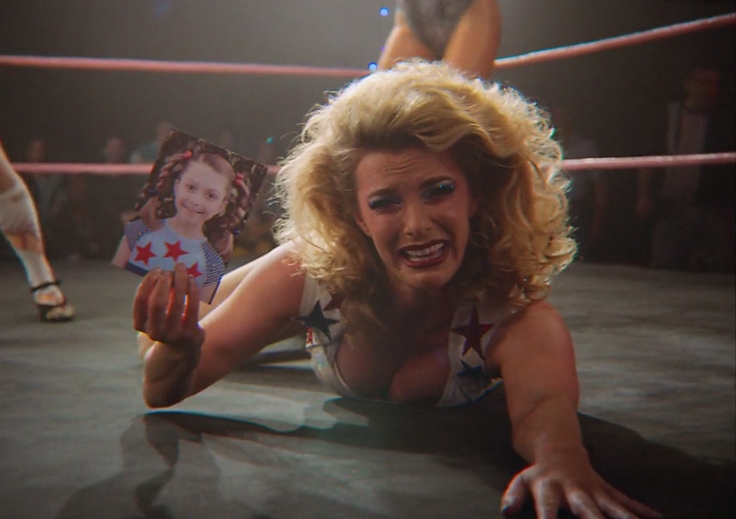
While GLOW originally introduced the very black and white idea that Alison Brie’s Ruth was the bad guy (because she slept with her best friend’s husband) and that Betty Gilpin’s Debbie was the good guy (because she was the best friend), a large part of the story has worked to show things aren’t actually always that easy. And in this second season, Debbie essentially became the villain, with behavior that’s simultaneously understandable while also unforgivable. But Betty Gilpin never once plays these beats with the concept of “I’m the villain now” driving her work; in fact, the nuance with which she played Debbie is part of what made her one of the most fascinating (and often frustrating, in a good way) characters on television this year. At the same time, Gilpin was also seemingly able to throw all sense of nuance out the window — though, it takes quite a bit to fully get a character like that down — when she transformed into her wrestling persona, Liberty Belle. There’s just something about Gilpin’s physicality and facial expressions as Liberty Belle that are on a whole other level, which was especially evident in scenes like the griefercize skit in “The Good Twin” (a scene where I truly was worried Gilpin’s face might end up stuck like that) and the big match in the season finale (“I’ve been baking pies at home! PIES OF RAGE!!” is the ultimate battle cry). — LaToya Ferguson
Michael Zegen, The Marvelous Mrs. Maisel
The first season of The Marvelous Mrs. Maisel was great. It’s second was nearly as good. Much of this has to do with creator Amy Sherman-Palladino and star Rachel Brosnahan. Tony Shalhoub and the rest of the supporting cast also deserve plenty of the credit. Yet Michael Zegen, who plays the title character’s estranged husband Joel, also deserves as much love as the rest of them. It’s hard to do because, from the beginning, Joel is meant to serve as the show’s antagonist. With time, he becomes a far more sympathetic character, especially in season two, and this has everything to do with Zegen’s ability to portray an otherwise adulterous and weak man as a person who, like Midge (Brosnahan), is simply trying to find his way in the world and learn from his mistakes. — Andrew Husband
D’Arcy Carden, The Good Place
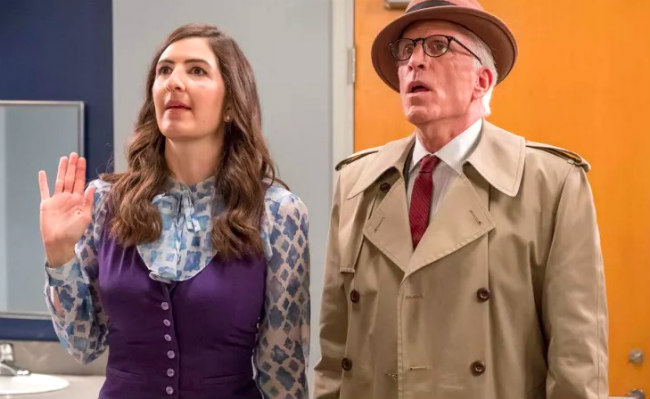
Once upon a time (maybe six months ago), you could have called D’Arcy Carden the secret weapon of The Good Place. There were other, bigger performances sucking up the oxygen, from Ted Danson and his evil laugh to Manny Jacinto and his Molotov cocktails to Kristen Bell going full Arizona. You can’t do that anymore, though. Not after the third season. And especially not after two of the show’s most recent episodes. D’Arcy Carden really beat up a crew of demons like Jet Li and then gave maybe the performance of the year the very next episode, playing each member of the human cast in character as Janet as each character. It was as impressive as it was funny, which is to say, wildly. Calling her a secret weapon now is like calling a fighter jet flying 100 feet over your house a secret weapon. Everybody knows. It’s right there. It’s loud and huge and made of metal. This analogy is going to hell. The point stands, though. — Brian Grubb
Asia Kate Dillon, Billions
Is it a heel turn when everyone is, more or less, a villain in your general orbit? As Taylor Mason, Asia Kate Dillon stepped away from their singular focus as a budding star at Axe Capital to pursue a relationship for approximately 11 seconds and wound up paying the price at the whim of their mentor, Bobby Axelrod. In response, they flipped from eager apprentice to backstabbing master, leveling a substantial blow against the foundation of Bobby Axelrod’s rich guy swagger reserves. The end result will likely play out next season as Bobby seeks his own kind of revenge but it’s hard to not root for Taylor as much for the heartache behind their motives as for the ice cold efficiency with which they moved, throwing Axelrod back on his heels. — Jason Tabrys






